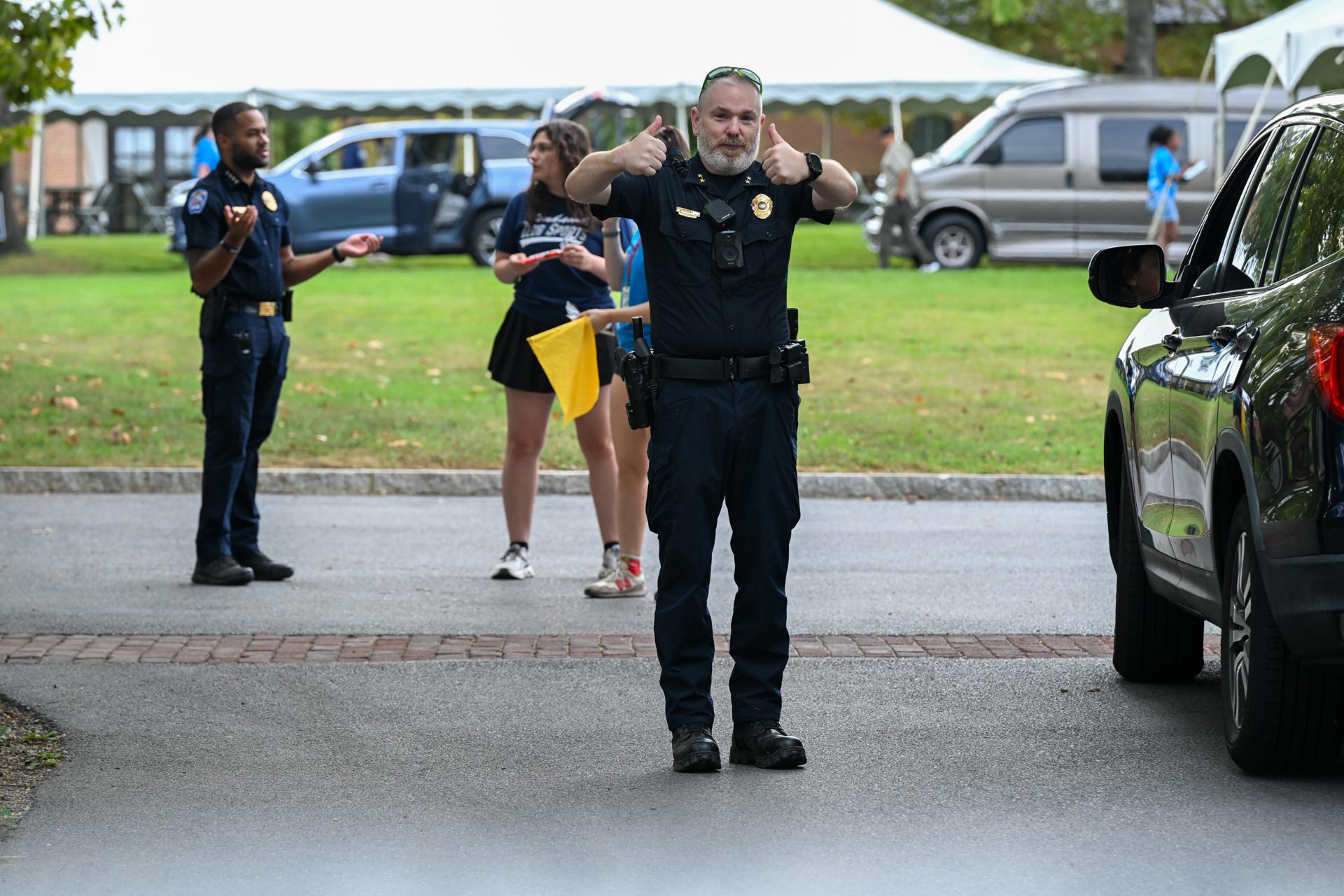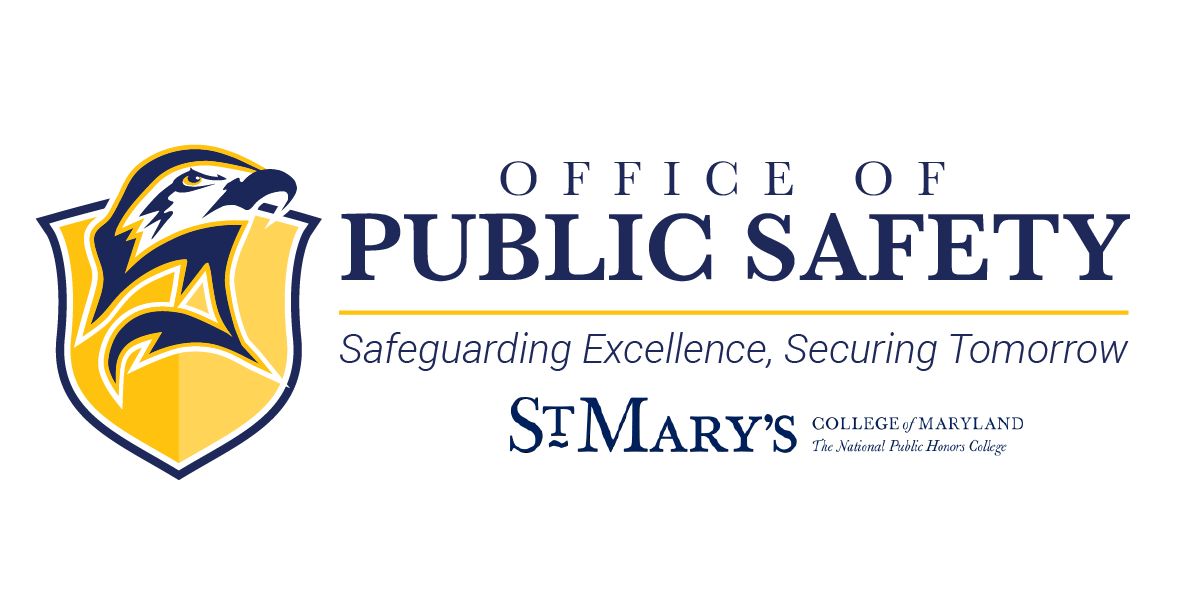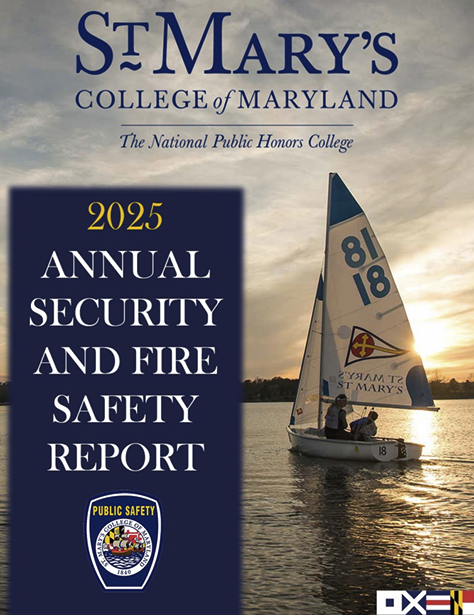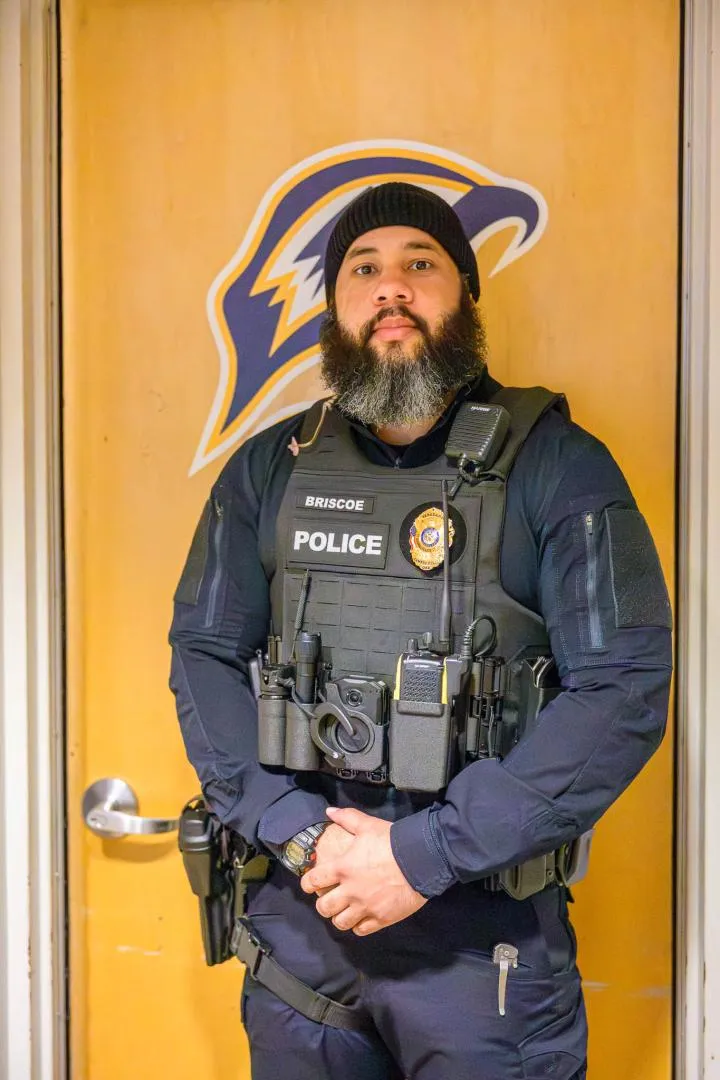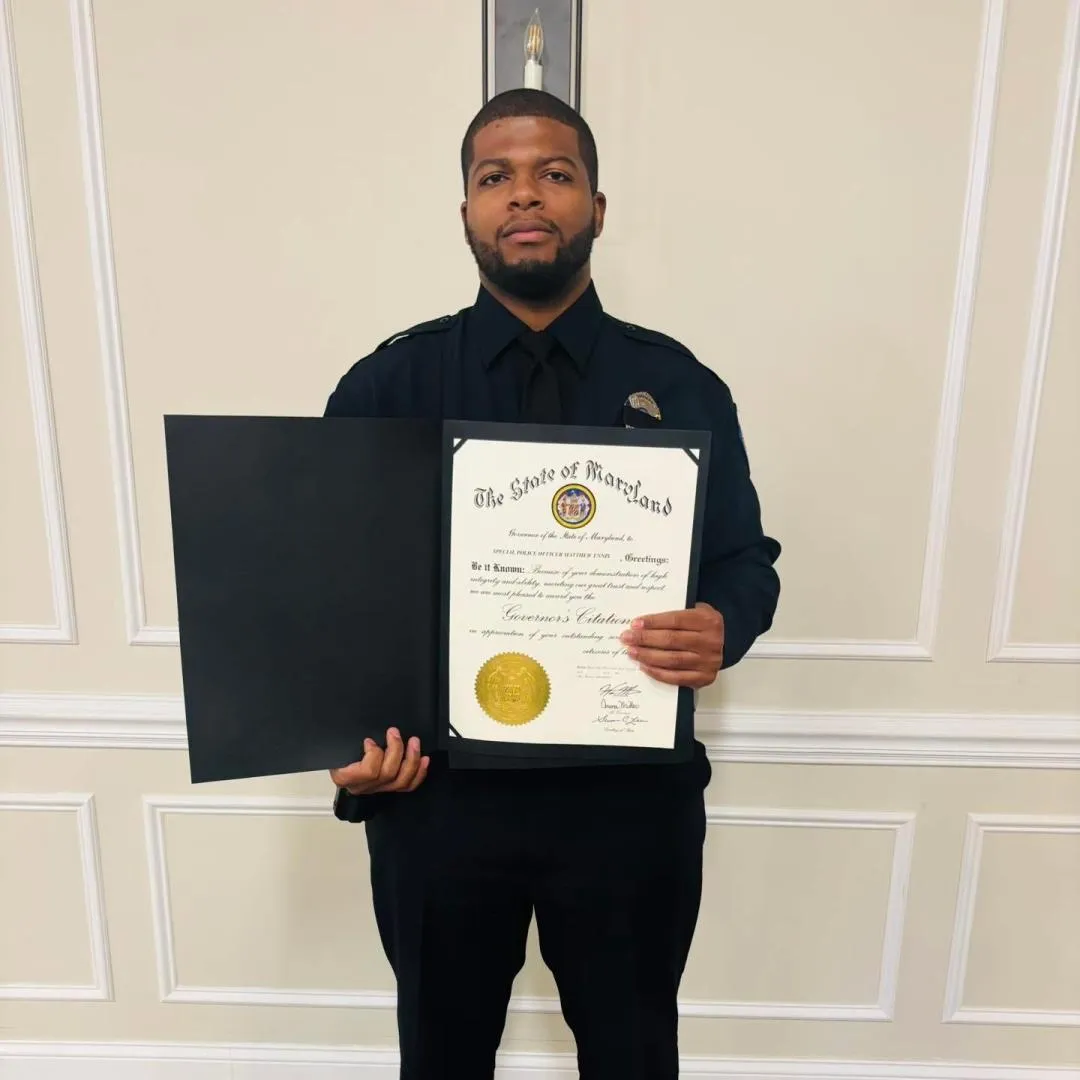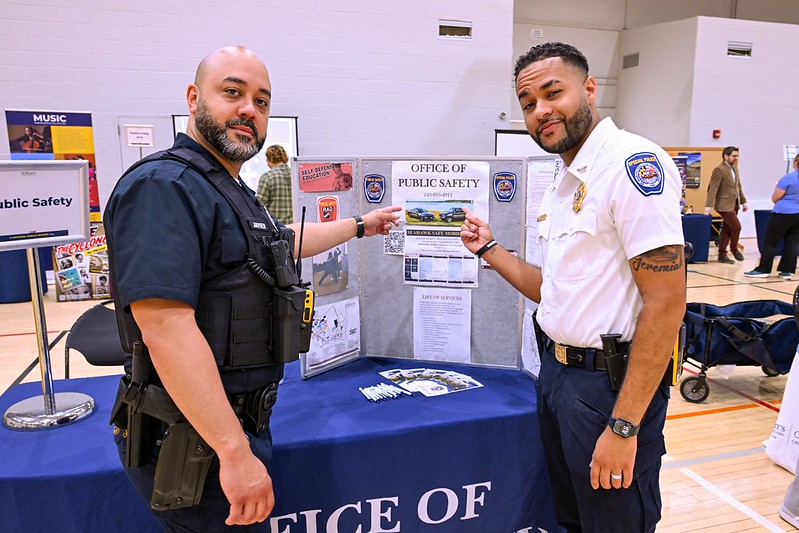Safety. Security. Engagement.
Safeguarding Excellence. Securing Tomorrow.It is the mission of the Office of Public Safety is to create a safer and more harmonious community through a holistic approach that prioritizes community policing, cultural competence, emotional intelligence, and procedural justice. We are committed to building strong and meaningful relationships with the community we serve, working collaboratively with students, faculty, staff, and other stakeholders to identify and address public safety concerns effectively. Our community policing initiative aims to foster trust, open communication, and mutual respect, empowering everyone to play an active role in enhancing public safety.

Emergencies
If you have an emergency on campus, call 911 first, then contact Public Safety at (240) 895-4911. Officers are available 24/7 to respond quickly and coordinate with local police, fire, and medical services. You can also use any of the blue light phones around campus to connect directly with Public Safety.
Clery Act Requirements
In compliance with the Jeanne Clery Act, SMCM publishes an Annual Security & Fire Safety Report. The report contains information regarding campus safety and security including crime reporting, crime prevention, college policies, drug and alcohol abuse, and sexual misconduct. The report also contains the three previous years’ crime and fire statistics for on campus locations, non-campus locations and adjacent public property.
For questions regarding information contained in the college’s annual security report or to request a hard copy please contact Christopher Coons.
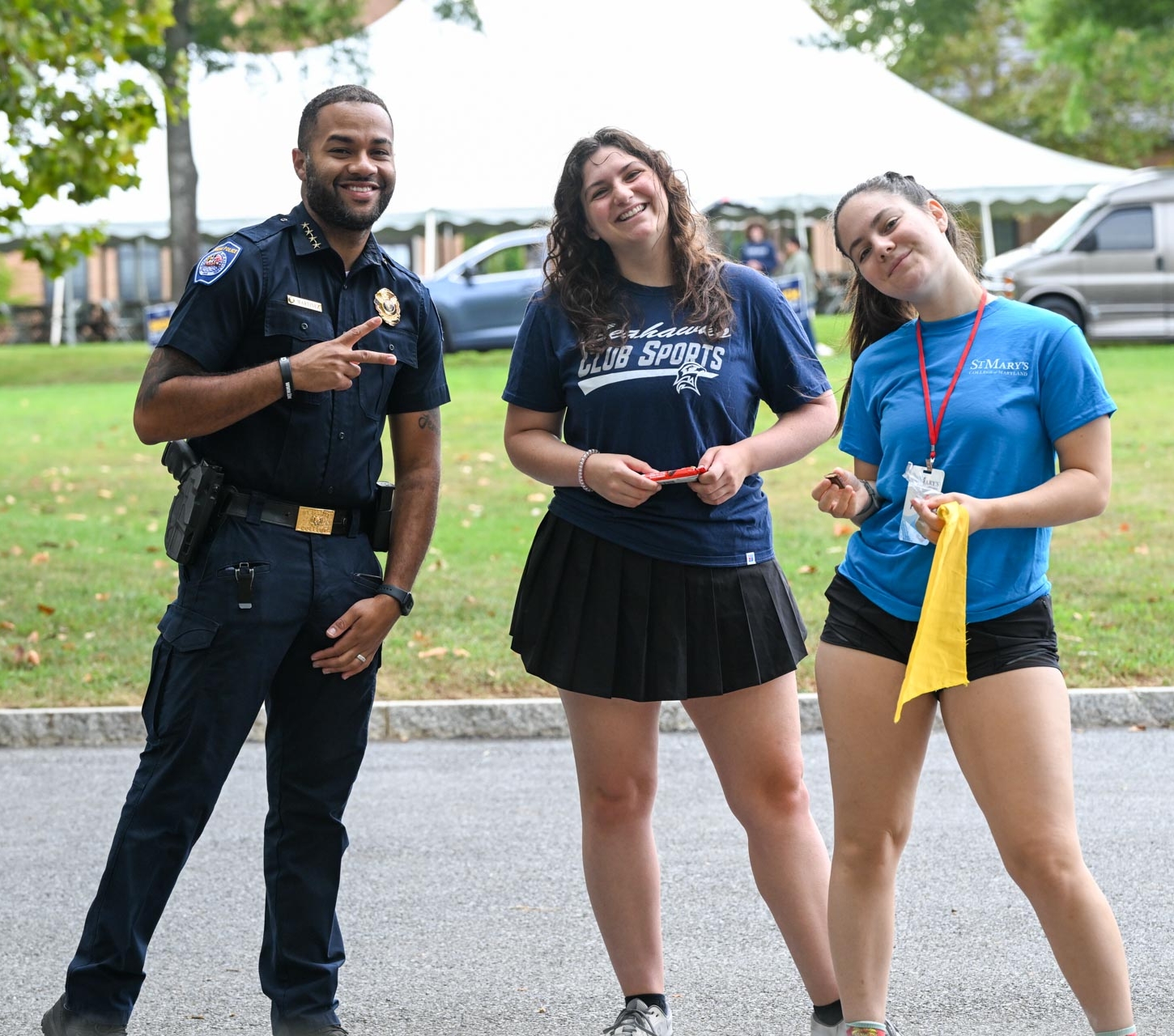
Campus Safety & Training
Public Safety works to keep our campus safe through regular patrols, safety checks, and community education. The College also offers safety training sessions for students, faculty, and staff on topics like emergency response, personal safety, and fire prevention. By learning what to do in different situations, everyone plays a part in keeping our community safe.
Policies & Procedures
Public Safety follows campus policies and federal guidelines to help protect the St. Mary’s community. These policies cover areas such as emergency response, crime reporting, parking, and campus access. Procedures are in place to make sure incidents are handled fairly, consistently, and with the safety of students, faculty, staff, and visitors in mind.
